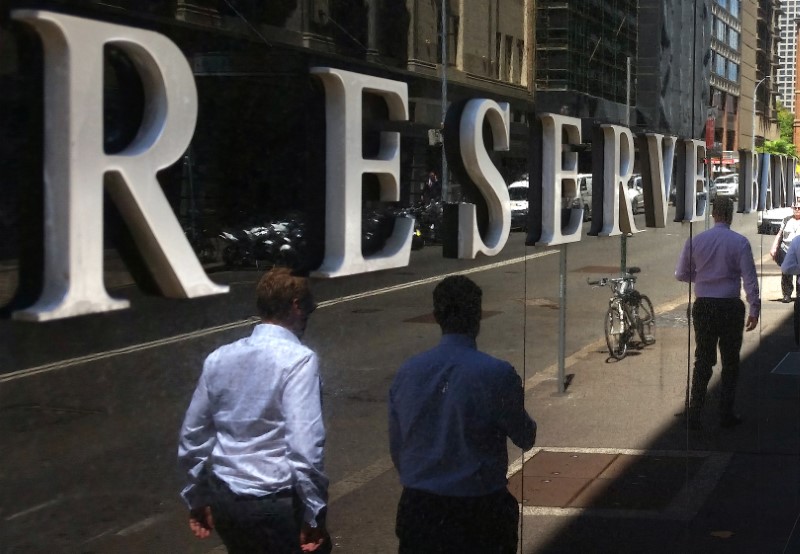By Swati Pandey
SYDNEY (Reuters) - Australia's central bank will buy up to A$5 billion ($2.87 billion)(2.51 billion pounds) in local government bonds on Friday, in the first round of its unlimited quantitative easing programme as it looks to cushion the economic shock from the coronavirus pandemic.
The Reserve Bank of Australia's (RBA) operation is aimed at reducing the funding costs for banks so that cheap credit is freely available across the economy that is on the verge of its first recession in nearly three decades.
The move prompted Australia's major banks to announce a sweeping package for the country's small businesses by offering hefty cuts of more than 100 basis points to lending rates as well as deferring repayments for those hit by the virus.
Australia now has nearly 800 cases of COVID-19, prompting the government to shut its borders and ban large public gatherings.
"I don't think the government or the RBA want any of the (banks) to get into any sort of funding stress," said Jonathan Sheridan, chief investment strategist at FIIG.
"The RBA is fully aware of the liquidity issues and so with the Yield Curve Control they plan to buy an unlimited number of bonds," he added.
"And the government has got to fund this with a fiscal response. They'll have to do a lot more and they'll have to issue more bonds so that the RBA can buy the short-dated ones to keep the yield at 0.25%."
The government is expected to unveil a second fiscal stimulus package within days.
The RBA cut its cash rate to an all-time low of 0.25% on Thursday following an out-of-schedule meeting and said it would do "whatever is necessary" to keep yields on three-year government bonds low.
The RBA has not set a target for the quantity or timing of bonds that it will buy under its quantitative easing programme, saying only that its purchase would depend upon market conditions and prices.
On Friday, the RBA offered to buy bonds, maturing in July 2022, April 2023, November 2027 and May 2028.
In response, Australia's 10-year government bond yields (AU10YT=RR) slipped to 1.265% from as high as 1.647% on Thursday. Yields on three-year bonds (AU3YT=RR) eased a touch to 0.315%, not far from the RBA's newly set target of 0.25%.
"The majority of Australian mortgages are on variable rates. That's effectively the main reason why the RBA has hugged the short-end of the curve because it anchors the bank's funding cost," Sheridan added.
The RBA's stimulus comes as global central banks took unprecedented steps this week to backstop financial markets with trillions of dollars of liquidity, joining governments to mitigate the impact of the coronavirus.
Yet, the coordinated policy steps have largely failed to stem a rout in financial markets, with many fearing a deep worldwide recession and more haemorrhaging of investments.
Across the Tasman Sea, New Zealand's central bank offered three-to-six month loans to banks while providing additional liquidity in the FX swap market to ensure lenders have easy access to cheap credit.
The RBA and its New Zealand counterpart have also re-instated swap lines with the U.S. Federal Reserve to help reduce dollar funding stress in money markets.

"The door remains open for more, including other measures if needed," said Su-Lin Ong, a Sydney-based managing director at RBC.